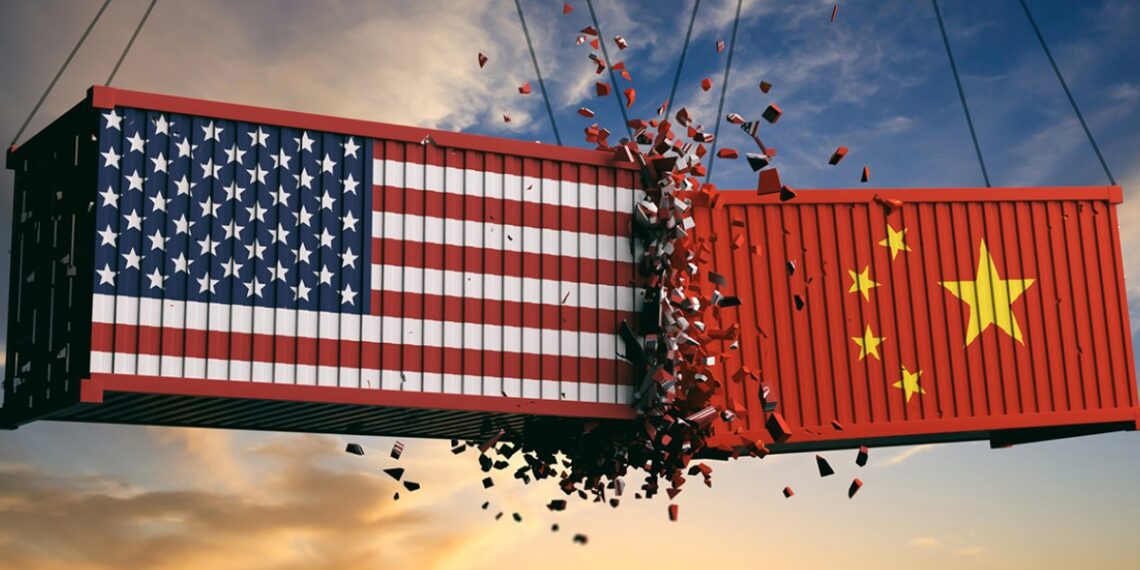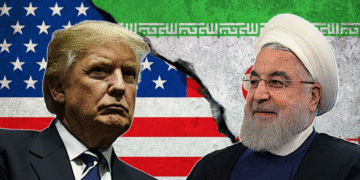By John F. Di Leo, Opinion Contributor
When a head of state – such as the President of the United States, for example – wants to encourage certain behaviors in a foreign government, the toolbox is limited.
There’s diplomacy, of course, but without something backing it up, diplomacy doesn’t mean much. So what are the tools that the diplomats have at their disposal?
There’s war, of course, which can mean the threat of war, or the promise of defense, or an alliance in case of mutual concerns about a common enemy.
There’s world opinion, and invitations to the right cocktail parties.
And there’s trade – either a promise of increased trade or the threat of diminished trade.
When you’re talking about global powers like the United States and Russia, these options are limited indeed. Vladimir Putin isn’t interested in world opinion or cocktail parties. And for all intents and purposes, he’s already at war with the whole world.
So that leaves trade.
The odd thing is, a free, capitalist economy like America’s is at a disadvantage when promising trade deals.
China or Russia, as command economies, can promise to buy or sell all sorts of things, because their governments do the buying and the selling.
The United States government buys and sells relatively little; most of our commerce is done by the private sector. So, our government can encourage purchases and sales, but really can’t fulfill very much.
We can raise or lower import tariffs, but even then, it’s still our private sector that has to want to buy the goods, or has to have goods to sell. And as we’ve noticed all too painfully in recent years, raising our import tariffs hurts our own people more than it hurts the other guy. So there’s a limit to the utility of tariffs as a foreign policy tool.
That leaves us with sanctions. What about when there is economic activity, either inbound or outbound, that the other country desperately needs, and you threaten to cut it off?
Now, that could indeed be effective. Either increasing sanctions or generally lifting sanctions can be a powerful motivator. If you have the power to control it.
But do we?
Before we discuss sanctions, we need to consider what sanctions are, and how they work.
In the United States, and in most western nations, there are generally three kinds of sanction programs, commonly known in the trade compliance world as ‘Export Controls’.
Country Controls: The government can literally ban most or even all trade with a foreign country. The USA essentially takes this approach with Cuba, North Korea, and Iran. We can’t sell to anyone in those countries; we can’t buy anything from anyone in those countries, we can’t exchange money or gifts, information or technology. Relations between us and those banned countries’ governments, NGOs, businesses or individuals are almost completely forbidden without specific government permission in the form of an Export License.
Party Controls: The government can allow a problematic country to be legal, while specifically identifying dangerous entities there, such as businesses, government agencies, terrorist groups, organized crime networks, and individuals, and forbid dealing with those parties. Various US government agencies publish lists of these “restricted parties,” and we can do business with others in those countries once we make sure they aren’t on these “denied parties” lists. We can therefore trade with honest people in Saudi Arabia, Iraq and Italy, for example, while being forbidden from doing business with Al Qaeda, ISIS or the Mafia.
Product Controls: Finally, much like most other Western nations, the US government has identified products, components, materials, machinery, and technology that would be dangerous in the wrong hands. These product controls, found in the Export Administration Regulations and the U.S. Munitions List, are complex and require a rigorous compliance program, but they enable the private sector to manage dual-use products and defense contracting programs safely and profitably, with an Export Licensing program available when appropriate.
This three-part program – countries, parties, and products – enables the business world to pursue the most international commerce possible while avoiding arming and funding our enemies.
But the program suffers from two major dangers:
Uneven compliance: The United States enforces these Export Controls, but despite having similar controls on their books, the European Union is notorious for disregarding them. The EU, for example, has happily become completely dependent on Russian energy, and just as happily trades with Iran, even to the point of supporting Iran’s nuclear ambitions, completely undercutting the value of these sanction programs.
Unnecessary expansions: Our sanctions programs have always been carefully limited, enabling plenty of trade opportunities and leaving room for tightening of sanctions if ever needed. Unfortunately, after the Russian annexation of Crimea a decade ago, the United States joined the Europeans in a new direction for sanctions that can only be called idiotic and masochistic. We added products that are not dangerous, such as oil and drilling equipment, to our bans on trade with Russia, and added banks, services, and peaceful conglomerates to the banned lists, on the peculiar theory that such an attack on the Russian private sector would cause Russian oligarchs to pressure Vladimir Putin to back out of Crimea. The success rate of this bright idea was predictably miserable.
In fact, all these Obama-era changes have done has been to render a once-rational export controls regime utterly unmanageable for most companies lacking a full law department and detective agency at their disposal, while shrinking the amount of uncontrolled trade so that there’s nothing left to threaten. President Trump can hardly scare Russia with the banning of some important type of commerce, when it’s all been banned already.
By cranking up the export controls on Russia so severely, during the Obama and Biden regimes, we have driven Russian commerce into the hands of China and our other geopolitical rivals. Why does Russia buy from China, Turkey, Iran, and other rogue states, strengthening their ties to create a new axis of anti-American power? Because we made them, that’s why. Because Barack Obama, who never met a manufacturer he didn’t want destroyed, started us on the path of cutting off peaceful trade with one of the world’s potentially biggest economies. Happy to see us dependent on China, the Obama regime didn’t want Russia to be dependent on us, so they started cutting off our nose to spite our face.
Who really suffers from these sanctions? Russia can still get the oil and gas drilling equipment they want, the factory machinery they need, the raw materials and finished goods they desire, by going shopping with their new friend (and former rival) China.
It’s our American manufacturers who have lost an important market for their goods. It’s our American exports that have suffered, and not for a foreign policy victory that might have made it worth the pain, but for an entirely predictable foreign policy disaster.
The Trump administration inherited nothing but minefields, everywhere you look. From deviant social policy to government waste, from a mountainous national debt to a rogue judiciary, the agenda that won at the ballot box is met by barricades and enemy fire every day in Washington, D.C.
And in the one area in which the President ought to be in full control – foreign policy – we find him with a depleted toolbox due to his predecessors’ self-destructive choices.
President Trump can’t threaten more sanctions against Russia; we have nothing left to deny them. He can’t threaten more direct warfare; the risk of two nuclear powers facing each other head-on is already too great for an escalation.
So in his efforts to drive Putin to the table for peace talks, President Trump will have to abandon the stick, and offer the carrot instead; somehow offering an expansion of trade as a reward for a course correction to good behavior, because that’s literally the only lever America has left.









